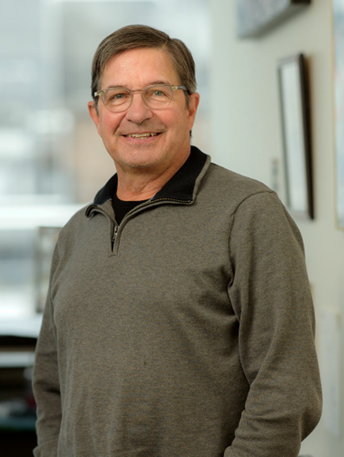
Research
Work in our laboratory is focused on understanding the molecular transactions that govern chromosome stability and replication. The association of cancer predisposition and other pathology with mutations that affect chromosomal metabolism forms the basis of our interest in this process. In this regard, we focus on a conserved multiprotein complex that includes Mre11, Rad50, and Nbs1 in mammals or Xrs2 in the budding yeast S. cerevisiae. Our laboratory has isolated and characterized the human Mre11 complex, hMre11, hRad50, and Nbs1. We proved that an analogue of the S. cerevisiae Mre11 complex exists in human cells, and subsequently established definitive evidence that the yeast and human complexes mediate double-strand break repair in S. cerevisiae and mammalian cells, respectively. Our data suggest that in human cells, the complex acts as a sensor of DNA damage that participates in the activation of cell cycle checkpoints following g-irradiation.
Current Projects:
- DNA damage response
- Innate immune signaling
- Chromosome biology in yeast, mice and organoids
Bio
Dr. Petrini is the Paul A Marks Chair of Molecular Cell Biology and Chair of the Molecular Biology Program at the Sloan Kettering Institute at Memorial Sloan Kettering Cancer Center. He is also the Founder and Director of the MSK Functional Genomics Initiative. The work in Dr. Petrini's lab is focused on the DNA damage response, a network of functions comprising DNA damage signaling, DNA repair, and DNA damage dependent cell cycle regulation. His laboratory employs yeast and mice to undertake genetic, molecular biological, and biochemical analyses of the pathways in eukaryotic cells that are responsive to chromosome breaks. His laboratory has elucidated the genetic bases of several chromosome instability and cancer predisposition syndromes in humans and have used model systems based on those diseases to understand the mechanisms that underlie the basic biological processes that are impaired in affected individuals.
Distinctions:
- Founded Functional Genomics Initiative
- EIO Scholar Award (Hexiao Wang)
- R35 award from NIGMS
- Chair of Molecular Biology Program
- Paul Marks Chair in Molecular Cell Biology
Selected publications:
Wardlaw, C., Petrini, J.H., (2023) A Link Between Innate Immune Signaling and DNA Replication. Bioessays. PMC10473822.
https://onlinelibrary.wiley.com/doi/10.1002/bies.202300042
Belhadj, S., Khurram, A., Bandlamudi. C., Ravichandran, V., Steinsnyder, Z., Wildman, T., Catchings, A., Kemel, Y., Mukherjee, S., Arora, K., Mehine, M., Dandiker, S., Izhar, A., Petrini, J.H., Domchek, S., Nathanson, K., Brower, J., Couch, F., Stadler, Z., Robson, M., Walsh, W., Vijai, J., Berger, M., Topka, S., Offit, K., (2023) NBN pathogenic germline variants are associated with pan-cancer susceptibility and in vitro DNA damage response defects. Clin. Cancer Res. 17;29 (2):422-431. PMC9843434
https://www.ncbi.nlm.nih.gov/pmc/articles/PMC9843434/pdf/422.pdf
Wardlaw, C., Petrini, J.H., (2022) ISG15 Conjugation to Proteins on Nascent DNA Mitigates DNA Replication Stress. 10;13(1):5971. doi: 10.1038/s41467-022-33535-y. Nat Commun. PMC9550767
https://www.ncbi.nlm.nih.gov/pmc/articles/PMC9550767/pdf/41467_2022_Article_33535.pdf
